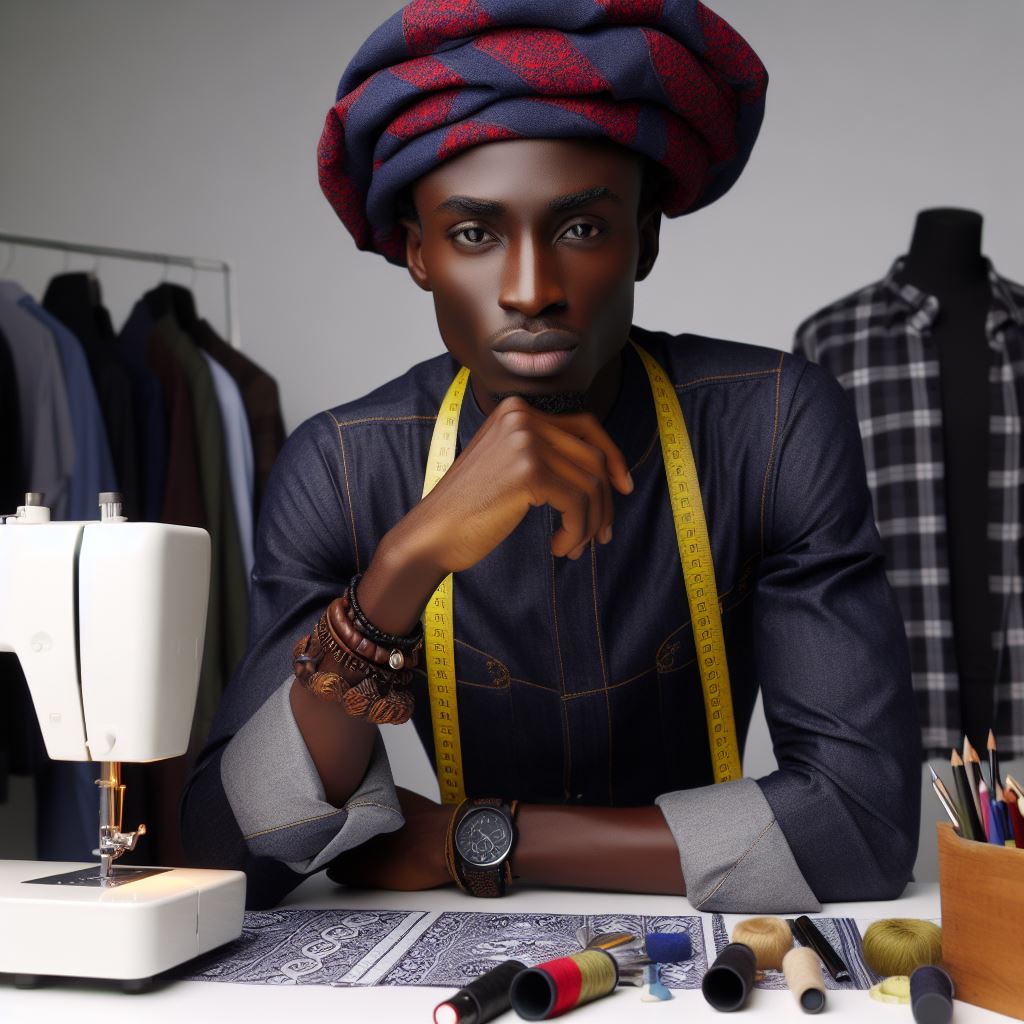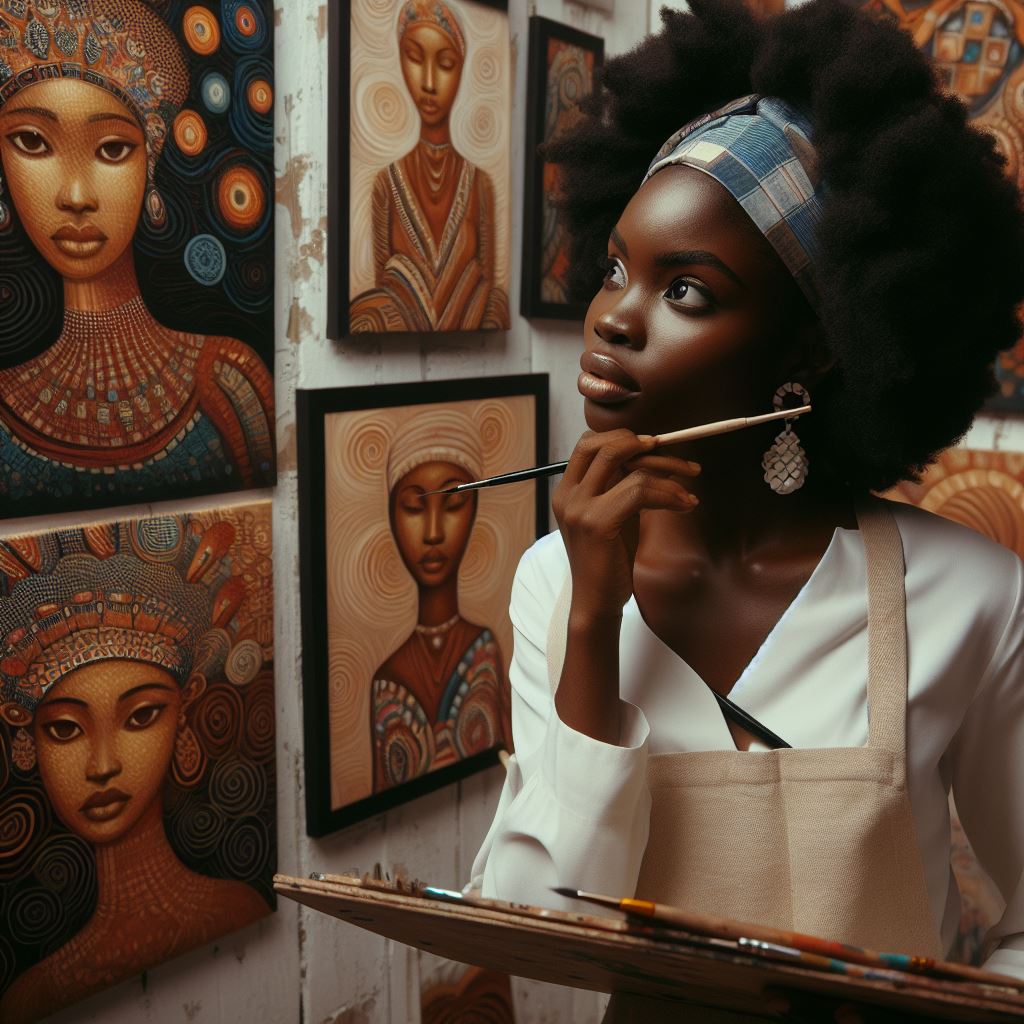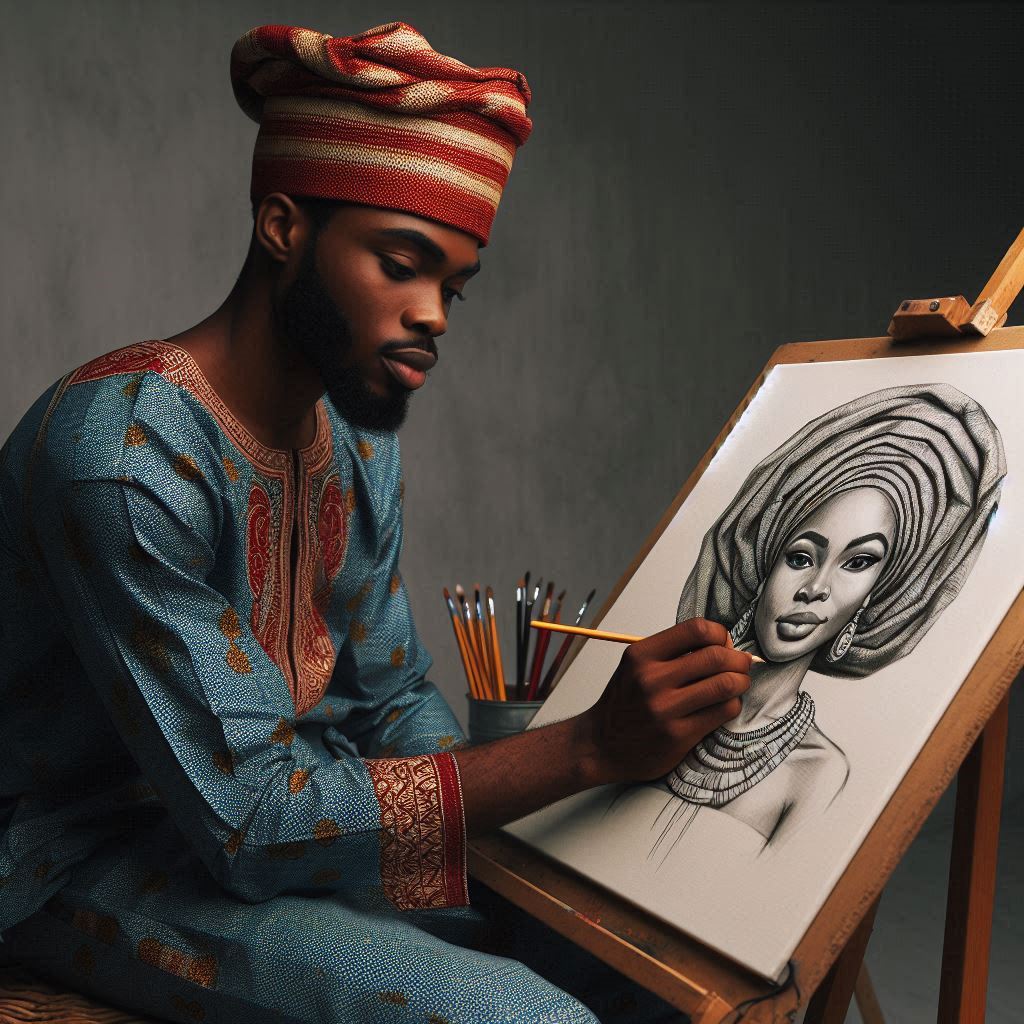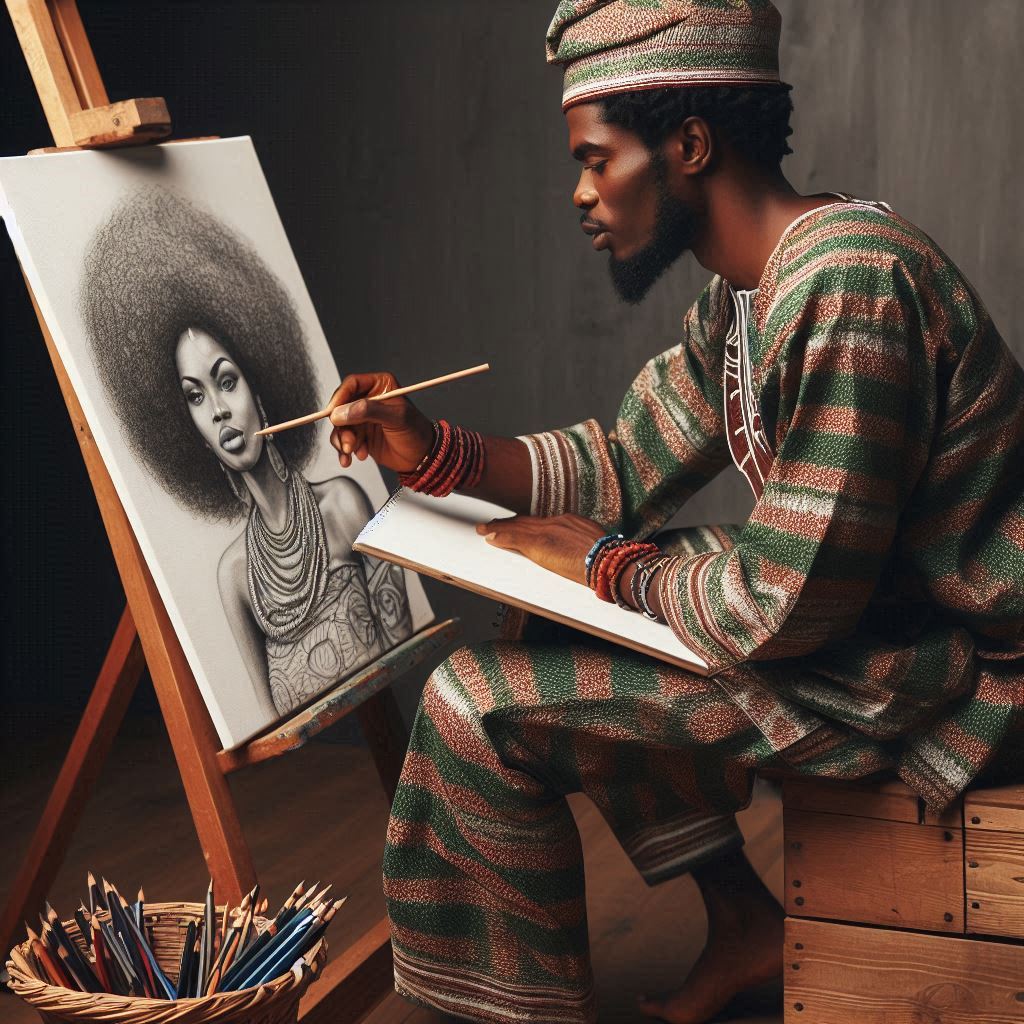Introduction
Nigerian fashion design transcends mere clothing; it’s a cultural phenomenon, an expression of identity, and a testament to creativity.
Fashion holds a revered position in Nigerian culture, intertwining with traditions, celebrations, and everyday life.
From the flamboyant attire of traditional ceremonies to the sleek elegance of contemporary streetwear, fashion serves as a canvas for self-expression and storytelling.
The evolution of Nigerian fashion is a captivating narrative, shaped by a myriad of influences over the years.
From colonial encounters to post-independence renaissance and globalization’s embrace, Nigerian fashion has undergone a remarkable metamorphosis.
Each era brings forth new styles, techniques, and trends, reflecting changing societal norms, economic landscapes, and artistic sensibilities.
Exploring the evolution of Nigerian fashion is akin to embarking on a journey through time, unraveling layers of creativity, innovation, and cultural heritage.
It’s a testament to resilience, adaptation, and the ever-changing nature of style.
In this section, we delve into the rich tapestry of Nigerian fashion, tracing its roots, celebrating its diversity, and marveling at its enduring influence on the global stage.
Pre-colonial era
In the pre-colonial era, Nigerian fashion design was deeply rooted in traditions and customs. Each ethnic group had its distinct style of clothing, influenced by their heritage and environment.
Traditional attires were made using locally sourced materials like cotton, silk, and wool. These materials were dyed with natural pigments to achieve vibrant colors that reflected the richness of Nigerian culture.
The Igbo people, for example, were known for their colorful wrapper skirts and blouses, which were made from handwoven fabrics. The Yoruba tribe’s attire featured intricate embroidery and beadwork, showcasing their craftsmanship.
The Hausa-Fulani people favored flowing robes and turbans, which served both practical and aesthetic purposes. These garments were often made from fine fabrics like brocade and damask, reflecting the wealth and status of the wearer.
The diversity of Nigerian fashion was a source of pride for the different ethnic groups. Clothing was more than just a form of self-expression; it was a symbol of cultural identity and heritage.
The intricate patterns and designs seen in Nigerian traditional attire were not just for aesthetics; they often held symbolic meanings. For example, certain colors or motifs could signify marital status, social rank, or spiritual beliefs.
Overall, fashion played a significant role in maintaining the cultural identity of Nigerian communities. It served as a way to preserve traditions and pass down knowledge from one generation to the next.
As Nigeria transitioned into the colonial era, Western influences began to shape the country’s fashion landscape.
However, the rich heritage of pre-colonial Nigerian fashion continued to influence contemporary designers, creating a unique blend of tradition and modernity in Nigerian fashion design.
Read: Day in the Life of a Nigerian Beauty Therapist
Colonial era
Introduction of Western Clothing Styles
The colonial era in Nigeria ushered in a wave of Westernization, bringing with it a new sartorial aesthetic that significantly transformed the country’s fashion landscape.
Western clothing styles, characterized by tailored garments and structured silhouettes, began to permeate Nigerian society, particularly among the elite and urban populations.
Adaptation of Western Fashion into Nigerian Clothing
However, Nigerians demonstrated remarkable adaptability by incorporating new styles into their existing clothing traditions, not adopting wholesale.
Indigenous fabrics, such as locally woven textiles and hand-dyed fabrics, were integrated with Western cuts and designs to create a distinctively Nigerian aesthetic.
Traditional attire, such as wrappers, agbada, and gele, evolved to incorporate Western elements, reflecting a synthesis of cultures and influences.
Influence of Colonialism on Nigerian Fashion Design
The influence of colonialism on Nigerian fashion design extended beyond clothing styles to encompass broader socio-cultural dynamics.
The imposition of colonial rule brought about changes in social hierarchies and economic structures, which, in turn, influenced fashion preferences and consumption patterns.
Western clothing became synonymous with modernity and status, while traditional attire was often marginalized or relegated to ceremonial occasions.
Colonial policies, such as introducing Western education and establishing trade networks, facilitated the spread of Western fashion ideals.
European fashion magazines and catalogs shaped Nigerian designers’ understanding of contemporary style and design, inspiring them.
Despite the pervasive influence of Western fashion, Nigerians continued to maintain a strong connection to their cultural heritage through their clothing choices.
Traditional garments remained an integral part of everyday wear, serving as symbols of identity and cultural pride.
Therefore, the colonial era played a pivotal role in shaping Nigerian fashion, introducing Western clothing styles and influencing the evolution of indigenous attire.
Nigerian clothing adapted Western fashion, reflecting complex socio-cultural dynamics, while colonialism influenced fashion design’s every aspect.
Read: Exploring Semiotics in Communication Arts
Post-independence era
Celebration of Nigerian Independence Through Fashion
Designers seized the opportunity in the post-independence era to celebrate Nigeria’s newfound freedom through creative expressions.
Nigerian independence became a profound source of inspiration, serving as a catalyst for designers to infuse their designs with patriotic motifs, colors, and symbols.
Fashion became a powerful medium for Nigerians to express national pride, with designers crafting garments reflecting cultural heritage.
Rise of Nigerian Designers and Brands
During this period, Nigerian designers and brands experienced unprecedented growth and recognition on both the local and international fashion scenes.
Trailblazers like Deola Sagoe, Lisa Folawiyo, and Mai Atafo captivate audiences with unique design aesthetics and innovative approaches.
Their bold and daring creations garnered acclaim from fashion enthusiasts worldwide, firmly establishing Nigeria as a force to be reckoned with in the global fashion industry.
A blend of Traditional and Modern Styles in Nigerian Fashion
One of the defining characteristics of post-independence Nigerian fashion was the seamless integration of traditional and modern elements. Designers embraced indigenous fabrics, such as adire, aso-oke, and Ankara, and reinterpreted them in contemporary designs.
The result was a captivating fusion of old and new, as traditional motifs and patterns were given a fresh, modern twist through innovative cuts, silhouettes, and embellishments.
The harmonious blend of traditional craftsmanship and modern design aesthetics created a captivating fashion landscape, resonating globally.
Designers drew inspiration from Nigeria’s rich ethnic traditions, celebrating cultural diversity at the heart of the fashion revolution.
Nigerian designers embraced the diverse cultural heritage, incorporating elements of traditional dress into contemporary designs.
This celebration of cultural identity not only preserves Nigeria’s rich heritage but also showcases it globally, fostering appreciation for Nigerian fashion.
In general, the post-independence era represented a golden age of Nigerian fashion, characterized by creativity, innovation, and cultural pride.
As Nigerian designers continue to push boundaries and redefine the fashion landscape, the legacy of this period continues to inspire and shape the future of Nigerian fashion for generations to come.
Read: Research Areas in African and Asian Studies
Contemporary era
As we move into the contemporary era of Nigerian fashion, we witness a significant shift in the global recognition of the Nigerian fashion industry.
Nigerian designers are gaining international acclaim and showcasing their work on prestigious platforms such as Fashion Week in New York, London, and Paris.
This newfound recognition has put Nigerian fashion on the map as a force to be reckoned with in the global fashion scene.
Global recognition of Nigerian fashion industry
Nigerian fashion is now being celebrated for its unique blend of traditional African aesthetics with modern design sensibilities.
Designers like Lisa Folawiyo, Mai Atafo, and Deola Sagoe have become household names not only in Nigeria but also on the international stage. Their innovative designs and attention to detail have garnered praise from fashion critics and enthusiasts worldwide.
Embrace of diverse styles and influences
One of the key factors contributing to the success of Nigerian fashion in the contemporary era is the embrace of diverse styles and influences.
Designers draw inspiration from their rich cultural heritage and global trends, resulting in a fusion of tradition and modernity.
This fusion of styles has resonated with a global audience, attracting attention and admiration for Nigerian fashion.
Impact of social media on Nigerian fashion trends
Social media has played a pivotal role in shaping Nigerian fashion trends in the contemporary era. Platforms like Instagram, Twitter, and Facebook have allowed designers to showcase their work to a larger audience and connect with potential customers in real-time.
Fashion influencers and celebrities use social media to highlight Nigerian designers and promote their creations, elevating visibility.
Read: Innovations in Language Arts Teaching Methods

You Might Also Like: Studying Criminology Online in Nigeria
Sustainable fashion practices
The evolution of Nigerian fashion design has seen a significant shift towards sustainability in recent years. This shift is evident in the rise of eco-friendly and ethical fashion practices throughout the country.
Rise of eco-friendly and ethical fashion in Nigeria
Nigerian fashion designers are increasingly incorporating eco-friendly materials and production methods into their designs. From using organic cotton to recycled fabrics, these designers are finding innovative ways to reduce their environmental impact.
In addition to using sustainable materials, many designers are also focusing on ethical practices in their production processes.
This includes ensuring fair wages and safe working conditions for their employees, as well as promoting transparency and accountability throughout the supply chain.
Promotion of local craftsmanship and materials
Another key aspect of sustainable fashion in Nigeria is the promotion of local craftsmanship and materials.
By sourcing materials locally and working with artisans and craftspeople from within the country, designers are able to support the local economy and preserve traditional skills and techniques.
Many designers are also using traditional Nigerian textiles, such as Aso Oke and Adire, in their collections.
By incorporating these materials into their designs, designers preserve cultural heritage and create unique pieces showcasing Nigerian fashion’s beauty.
Fashion activism in Nigeria
In recent years, there has been a growing movement of fashion activism in Nigeria. This movement is led by designers, models, and influencers who are using their platforms to raise awareness about social and environmental issues within the fashion industry.
These activists drive positive change in the Nigerian fashion industry by promoting body positivity, diversity, and ethical practices.
They are challenging traditional norms and pushing for a more inclusive and responsible fashion ecosystem.
Ultimately, sustainable fashion practices are playing an increasingly important role in the evolution of Nigerian fashion design.
Designers contribute to a more sustainable fashion industry in Nigeria by embracing eco-friendly materials, ethical production methods, and local craftsmanship.
Delve into the Subject: Anthropology and Nigerian Political Systems
Delve into the Subject: Role of Anthropology in Nigerian Archaeological Discoveries
Fashion events and platforms
Role of Fashion Weeks and Events in Showcasing Nigerian Talent
Fashion weeks and events play a pivotal role in spotlighting Nigerian talent on the global stage. These platforms provide designers with opportunities to showcase their creativity and craftsmanship to a diverse audience of industry professionals, media, and fashion enthusiasts.
Transform Your Career with Expert Guidance
Get personalized mentorship consulting that’s tailored to your unique path. Our expert advice is actionable and exclusive.
Get StartedImportance of Fashion Blogs and Social Media in Promoting Nigerian Designers
In addition to traditional fashion shows, the role of fashion blogs and social media cannot be overstated in promoting Nigerian designers.
Influential bloggers and social media influencers crucially amplify Nigerian fashion’s reach, sharing images and reviews worldwide.
Collaboration with International Brands and Designers
Collaboration with international brands and designers is another avenue through which Nigerian fashion designers can expand their reach and influence.
Partnerships with established brands provide opportunities for Nigerian designers to tap into new markets, gain access to resources and expertise, and elevate their brand visibility on a global scale.
Moreover, collaboration with international designers allows for cross-cultural exchange and innovation, enriching the creative landscape of Nigerian fashion.
These partnerships not only benefit Nigerian designers but also contribute to the diversification and globalization of the fashion industry as a whole.
In a nutshell, fashion events and platforms play a crucial role in showcasing Nigerian talent and promoting the country’s vibrant fashion scene to a global audience.
Fashion weeks and social media offer Nigerian designers invaluable opportunities to gain exposure, build connections, and leave their mark.
Collaborations with international brands and designers further expand the horizons of Nigerian fashion, fostering innovation, creativity, and cultural exchange.
Find Out More: Career Opportunities with a Music Degree in Nigeria
Explore Further: Creating Sustainable Art Practices in Nigeria
Conclusion
As we journey through the annals of Nigerian fashion design, a vivid narrative emerges, weaving together threads of tradition, innovation, and cultural expression.
Nigerian fashion has evolved remarkably, from its indigenous craftsmanship origins to its current status as a global powerhouse.
The impact of Nigerian fashion on the global industry cannot be overstated.
Nigerian designers, with their bold patterns, vibrant colors, and rich cultural heritage, captivate fashion enthusiasts globally, influencing trends.
Looking to the future, Nigerian fashion is poised for even greater heights.
As the industry continues to evolve, there is a growing emphasis on sustainability, ethical production practices, and inclusivity.
Nigerian designers are at the forefront of this movement, pioneering new trends and innovations that prioritize both style and social responsibility.
In the coming years, we can expect to see Nigerian fashion push boundaries, challenge norms, and redefine the landscape of the global fashion industry.
Nigerian fashion, with its unwavering creativity and innovation, captivates audiences, inspires change, and leaves an indelible mark.




